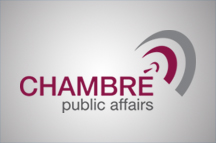 It’s fair to say that the Northern Ireland political parties have been quieter during this General Election than during previous campaigns.
It’s fair to say that the Northern Ireland political parties have been quieter during this General Election than during previous campaigns.
Principally, this is because we’ve just had too many elections and polls recently. Over the past year-and-a-half NI has been to the polls on three occasions – two Assembly elections and the EU referendum.
Even I, a bona fide politics junkie, found that a bit much – so spare a thought for our poor local parties, coming to the end of their fourth campaign in two years. None of them have access to huge levels of funding, at least by UK standards, so are struggling to campaign to their usual level of intensity.
This is reflected in the polling results. Belfast pollsters LucidTalk last week released predictions for the 18 constituencies in Northern Ireland. According to Bill White, the LucidTalk MD, the only real change we can expect to see is in Fermanagh and South Tyrone, where the UUP incumbent Tom Elliot is predicted to lose his seat to Sinn Féin’s Michelle Gildernew.
For the DUP and UUP, one cost-effective approach has been to simply piggy-back on the Conservatives.
 The UUP used to be allied to the Conservatives – the ill-fated Ulster Unionist and Conservative New Force. And the DUP has been making a concerted effort to cosy up to the party in recent times, including hosting a champagne reception at last year’s annual Tory gathering in Birmingham.
The UUP used to be allied to the Conservatives – the ill-fated Ulster Unionist and Conservative New Force. And the DUP has been making a concerted effort to cosy up to the party in recent times, including hosting a champagne reception at last year’s annual Tory gathering in Birmingham.
So, both parties have been more than happy to help attack the Labour leader, Jeremy Corbyn, for his alleged past links to the IRA. Both have announced that they will not support Labour to form a government, in the event of a hung parliament.
On the other side of the divide, the Labour Party has historic links to the Social Democratic and Labour Party in Northern Ireland, and the current Labour leadership has well-publicised links to Sinn Féin. However, in the event of a hung Parliament (still unlikely, irrespective of YouGov’s brave predictions), Labour will be unable to rely on the same support from NI MPs in the chamber as the Conservatives.
The SDLP are simply too small to be much help – the party held 3 seats in 2015, but two of those are in jeopardy this time around. And Sinn Féin, while extremely strong in Northern Ireland, does not take its seats in Parliament – meaning it would not be able to support Labour into government.
Regardless of the results in the election, from a Northern Ireland point of view, the campaign has been rather frustrating.
This election has seen the flames of division – always smouldering away in Northern Ireland – fanned by the Conservatives for electoral gain. Whether or not the party’s attacks on Corbyn’s IRA links garner it votes, this is short-sighted.
Northern Ireland is facing one of its worst periods of political crisis since the collapse of power sharing in 2002, with no Executive and no clear path to forming one. Now, an uphill struggle has been made all the steeper by the Conservatives’ electoral tactics.
Northern Ireland has a history of being a serious problem for the UK Government. If the Tories form the next government – and it looks like they probably will – the incoming Secretary of State for Northern Ireland may rue their party’s eagerness to play politics with our divided society.














